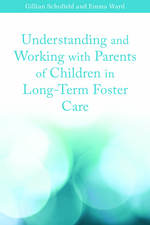Creating Change for Complex Children and their Families at the Croft Child and Family Unit
“Through individual and group work we aim to get to know a child really well in order to identify their strengths as well as their weaknesses. We also work closely with parents and have an opportunity to see how family relationships work on a day-to-day basis. We use the information we gain from these close observations to establish a holistic, integrated understanding of all the important factors driving the child’s problems and then use this to plan interventions.”






